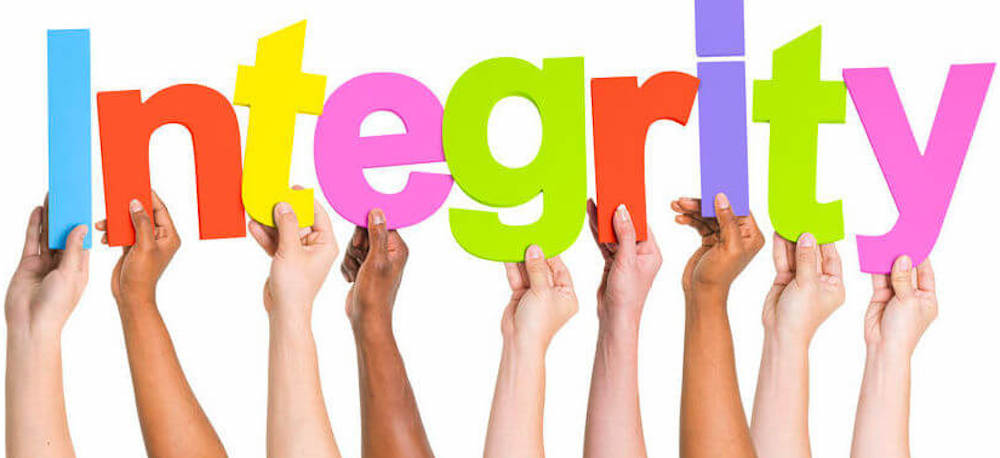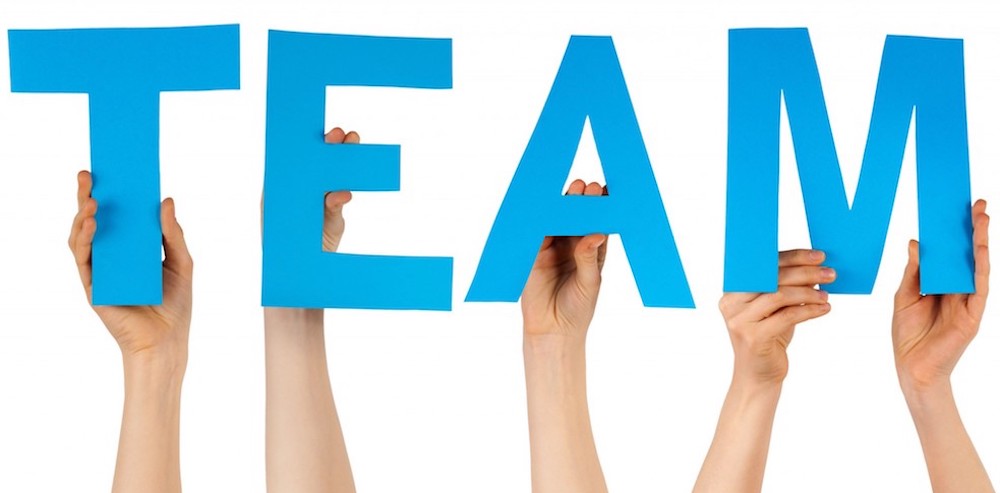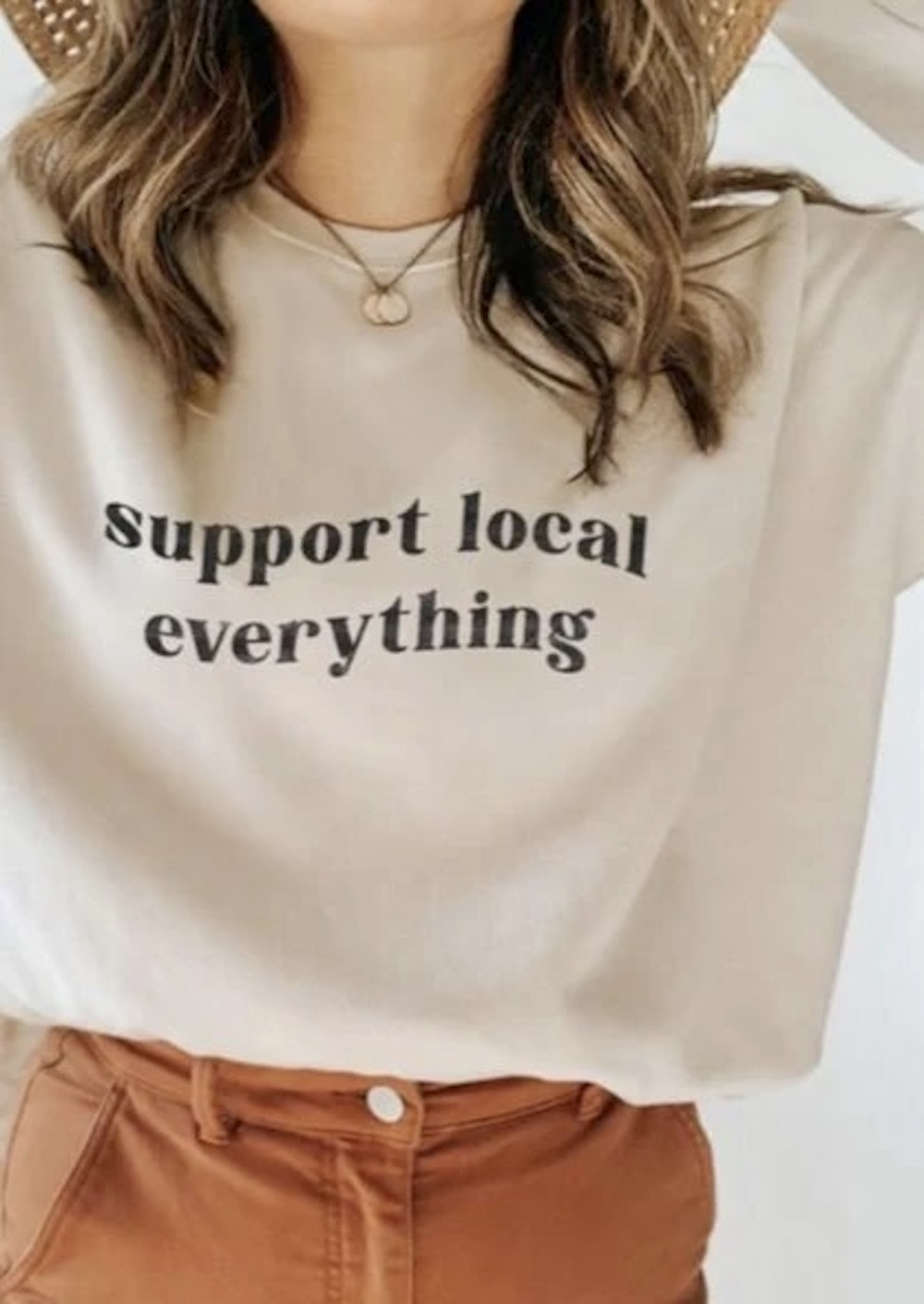By Rick VanSickle
Old man yells at cloud: It’s an overused trope that has morphed into an overused meme, yet it’s more apt now than it ever has been.

I’ve attempted to put into words what wine journalism means in today’s terms, under the new rules of engagement for young writers trying to insert themselves into the wine writing genre. And not just writers; anyone trying to find their place in the wine communications industry while maintaining some sort of integrity doing it. A few years ago I started a word document I keep on my desktop called “A letter to my daughter” in the hopes that some day I would finish it and send it to her (or leave it there for her to find when I shuffle off this mortal coil).
It was from the point of view an a retired journalist (in this case, her dad) yelling at clouds after watching the proliferation of the dark side of social media and in particular, Instagram, and what (mostly) young women were willing to do for those likes, follows and those adorable emojis. At the time, I had no idea where Tabria, my daughter, was headed in her career following university but suspected it would be inside the wine world in some form or another. I wanted to impart some dad thoughts on maintaining integrity in everything she does.

In the first draft, I wrote:
“It is a changing media landscape, much different from the one I thrived in as a younger wine writer punching out reviews and stories that ran in newspapers and magazines across the country. The written word meant everything. Getting it right, being fair and transparent wasn’t just a goal, it was crucial for survival as a journalist and for your integrity. What you wrote mattered, and if you screwed up too many times or compromised your integrity, you were done. No more newspapers, no more magazines and no social media to fall back on.
“It’s different now, of course,” I wrote, “and as I watch (Tabria) cautiously enter the realm of wine marketing, in whatever form that takes, I have some words I would like to share with you and all the others out there embarking down a similar path.”
Things have changed since I began that letter and Tabria has now started her career in marketing and communications in the wine business. In a lot of ways we are on opposite sides of the wine industry, but I am steadfast in my belief that there are lessons to be learned from the journalist side of writing for anyone making a living or attempting to make a living in the wine industry whether you are a writer, critic, marketer, communicator or influencer/promoter (whatever you want to be called). So, let’s start here:
Integrity

This is not something you just magically acquire; you have to earn it. It comes with time, hard work and sacrifice. It means not crossing some lines and it means owning up to it when you cross them.
I recently yelled at clouds on my Facebook page with a post to friends and later changed to public when urged to do so. I was at the boiling point over a wine writer’s “sponsored” post and paid-for reviews about a Niagara winery’s portfolio. Here’s a reader’s digest version of the FB post:
“Here’s where I get confused and, yes, feeling like I hold a minority opinion on this. Niagara winery “A” pays Instagram marketer/wine reviewer/influencer “B” to write nice things about their wines and post the reviews to IG. Surprise! They are glowing reviews … because they were paid to write glowing reviews, maybe even the notes were given to them by the winery or approved (if I was paying, I would want to know what I’m getting). Instagram marketer/wine reviewer/influencer “B” posts those reviews to the masses (and that’s an entirely different discussion … those followers), which appear real, to IG and there is a whole lot of clapping of hands/flames/100% emoji comments including a comment from winery “A” which, as we know, paid for the reviews, that reads: “Thank you for the wonderful reviews about our favourite wines! Cheers!” Winery “A” seems almost giddy and excited to receive such glowing wine reviews, but, remember, they were paid for. Now, if you read the post from the IG account, it does say at the very bottom of the post, well past the glowing reviews, that the content they are reading is a “sponsorship” with winery “A.” But that message is lost in a sea of bullshit reviews paid for by the winery and lost even more when winery “A” then shares those bullshit reviews on its own channels as if it’s real content from an objective reviewer who wasn’t paid by the winery to write them.”

There were significant comments with this post, and you can read the post and comments here, just scroll down and you will find it. What isn’t in the post is the response from winery “A” after I contacted them to ask why they would pay someone to write good things about their wines. Here is the response:
“We paid (influencer/wine writer/marketer “B”) to promote our wines because we think that (“B”) does a great job promoting Ontario wine, and we hope (their) followers will seek out our wines because we have wines they will enjoy.”
I was shocked and saddened by that reply and the lack of understanding that paying someone to write nice things isn’t real, hurts the industry in general and simply confuses consumers. Even when portrayed by the less than obvious “sponsored” tag at the bottom of the post, it’s still paid-for praise that bears no resemblance to the truth (or at least should be treated as pure bull shit). Paying someone to say nice things about your wine doesn’t make them a great promoter of Ontario wine and only makes them culpable in the slowly eroding trust between wine writers and consumers.
I concluded in my FB rant: “We just have to be better, it’s so confusing for the consumer, and it’s not helpful for wineries to pay for good reviews and pretend they are objective reviews. It’s bullshit. Make good wine, get the wine to reviewers who are legit (there are still some out there) and who can’t be bought, and run your business as honestly as you can. This kind of bullshit has to end.”
Pick your team

You cannot be all things to all people. You can’t be a serious wine writer and promote wineries at that same time for money, especially when you include “objective” reviews of the wines. If you do this, you are compromised as a journalist and the reviews you produce, ALL REVIEWS, have to be considered promotional material whether they are or not. They have no value for the consumer and it will catch up to you.
Now, I know so-called Instagram “influencers” take the brunt of criticism for what they do by accepting (soliciting) money to post gorgeous photos on IG of themselves enjoying great wine and great times in shallow posts that don’t pretend to be reviews. I am not talking about influencers here, that’s a different topic all together and one that has been done to death.
And, no, I am not talking about Instagram wine marketers either. Endless posts about California, South Africa, Chablis, Chile … you name it, whoever has the money to dole out, find their way to IG every day. They are exactly what they are and also do not pretend to be anything more than paid sponsorship. I have a number of people I highly respect trying to make a living through this type of marketing and I really have no problem with it — in fact, I respect the hustle. Most of this type of Instagramming is about the business of selling wine and it’s clearly established as just that, even if it is buyer beware.
My point here is this: Pick your team. You can’t be an IG influencer or marketer on the one hand and a serious wine reviewer on the other. It just doesn’t work like that and you are sacrificing your own integrity. At some time, that goes for those who are selling wine via an independent wine club and writing their own reviews and dishing out incredibly high scores for the wines they are trying to flog. You need to take those reviews with more than a grain of salt.
Wineries are complicit
Wineries, such as “A” mentioned above, have an important role to play in the eroding world of suspect wine journalism. The advice for them is simply this: Just don’t do it!
Paying someone to write glowing reviews about your wine and then posting to your own social media channels about the great reviews and attention you’re getting and acting surprised at all the attention is dishonest and completely unethical. What happened to the “sponsored” tag that resides inconspicuously at the bottom of the post? It’s gone forever, thus tricking your followers into believing it’s real journalism when it’s actually promotional fluff.
Look, here’s what you can do instead. Make good wine, get them in front of the wine journalists you trust and let the chips fall where they may. Believe in the wine you make, seek a clear path to honestly promote those wines and please refrain from fuelling an avenue for the dark side of wine criticism. If there is no market for fake wine reviews and fake praise, we still have a chance to lift that dark cloud gathering over the problem.
The winery (and industry) role

Earning enough money to make a career in the world of wine writing/criticism is hard. Only a very few do in Canada. And those who do, need to delve into some things they don’t particularly enjoy, which entails long hours, long days and always hustling to keep the money coming in. Most have no benefits, no job security and are perpetually pivoting to keep up with technology, trends and shrinking avenues for freelance dollars.
On a personal note, I have been writing about wine for over two decades, but it was never a full-time job for me. I was a freelancer and newspaper wine writer selling my own columns back to various papers I worked for, but all the while collecting my paycheque as an editor (a bit of a scam, kind of like double-dipping, but, hey, newspapers were once dripping in cash). I’d go on fabulous wine trips around the world for one or two weeks at a time, come back and write one (maybe two) freelance stories and get paid $300-$500 per story. Feel free to do the math, or take my word for it — it’s does not pay the bills. Eventually I decided to cut out all freelance writing and built a website that I own and write for. My income is 100% from advertising on the site and I pay freelancers when they are asked to submit a story or pitch one. I am grateful for the support from advertisers and generally sell out all the spots available on this website. But, again, I could not do this if the money earned was my entire income.
As a winery, and quite frankly an industry association, you have choices to make on how best to spend your limited marketing dollars. I only ask that you seek out honest avenues for that money, your trusted writers/communicators, whoever and wherever they may be, and build relationships. Reach out and send out samples (most wine writers, this one included, don’t solicit for samples or charge a fee to taste, but accept them and taste every wine for possible review) to writers. Contact and invite writers to your winery to taste with the winemaker or do whatever they feel comfortable doing. Some will come, some will not, but keep trying.
You want consumers to drink local wines, so advertise and spend marketing dollars locally where people go to find local wines. Facebook, Google and IG are not local, offer nothing to the local wine community, and you just may want to consider spending money elsewhere in support of those who support you. Writers and wineries can work together without compromising ethical boundaries. But it won’t happen until wineries stop paying people to write fairytales about their wines. That also goes for winery associations. Nothing bothers me more than to see Ontario’s biggest association, Wine Marketing Association of Ontario (WMAO), spend money that is gifted to them from our tax dollars and member fees on Google, Facebook and other non-local sources all the while preaching a drink/support local theme. Doesn’t that extend to where you park your marketing dollars? Supporting local journalists would be a far better way to spend money if you truly want them to support local, don’t you think? Or is supporting local a one way street?
I know, I know, nothing but an old man yelling at clouds. But you know what? If I don’t yell at clouds from time to time, I think I will explode.
Wines In Niagara tasting policy

As publisher of Wines In Niagara and the main writer of the site, I come from a journalist background as an editor and writer for newspapers my entire adult life until full retirement this year. While wines are reviewed on this site we do not consider reviews the thrust of the website. We are more interested in how the wine was made, what decisions went into making the wines and understanding what’s in the bottle. Over half the wines reviewed are from samples sent to Wines in Niagara unsolicited. We never ask for wines to be sent to us (unless there is a compelling reason to do so … such as a retrospective of some sort we want to explore and need winery assistance to make it happen) but if we do receive them, we taste like we taste all wines and review what we feel are the wines that will appeal to our readers. There is no guarantee that a wine review will be published and we do not publish reviews that score poorly based on our palates (there are rare occasions that we can’t ignore a low scoring wine and will comment if we feel it is of value for our readers). We definitely do not charge wineries to taste their wines and never will. The revenue for Wines In Niagara, though modest, comes solely from advertisers on the website. These are advertisers we know, not Google ads targeted at you via logarithms. We believe in local for our stories, reviews and advertising. It’s how we built our model. Advertisers do not curry favour from being an advertiser and I believe advertise on the site because we create content that attracts engaged readers who visit to read about Canadian wine.








This is well thought out Rick – and I agree with you … mostly. I left radio this year and now work for a marketing firm in Hamilton. Your point about Facebook, Google, and Instagram not being local – I don’t think is completely true. While I have strong issues with the personal ethics of the people who run these companies – the reality it if you are a small business digital marketing offers a lot of bang for your buck. You can target people right down to the postal code as to where your ads run. Thanks to targeted ads as well you can make sure your ads are being seen by people who are likely going to be looking for the product.
That being said – that is why if you are Winery “A” and you want to take a look at influencer marketing you need to make sure you’re vetting your partner. So many people think that x number of followers or x number of views are the be all and end all of success on the platforms.
I have done a fair bit of yelling at clouds myself taking a look at what has happened to the craft of wine writing in the decade I’ve been involved… but I have a bit of hope that cream is starting to rise to the top. You hit the nail on the head with the word Integrity.
Great comments, Andre, and agree, social media advertising is so brilliant that you can’t ignore it. But I also believe that grassroots targeting of the right people with the right approach for local writing needs the support from media buyers and can get the desired results. If media (such as what you do with Two Guys) is supporting local, the local wine industry should be supporting you (and, really, I would far rather see wineries supporting real journalism vs paying an influencer to look great in their vineyard). And I believe that is particularly true with tax-funded industry associations.
Spot on Rick. One exception is wineries paying to have wines professionally evaluated and scored by professionals who do the evaluation, but not the marketing. Beverage Tasting Institute is used for this and is doing evaluation for NY State “competitions”.
Duncan, I have no problem with wine competitions charging wineries for wines they enter and get evaluated (I suppose that’s similar to the example you give here, and not the same as paying someone to write favourable reviews for a price). What I do object to, and I did not cover it in the post, is a wine website charging people for each bottle tasted and being able to delete any reviews they don’t like. Meanwhile, if a winery sends the wines in unsolicited, the reviews they don’t like can’t be deleted. What that amounts to is a segment of wineries on the website (those who paid) show only great reviews while others (those who didn’t pay) live with what they get. It’s a two-tier system, haves and have nots.
Nicely done, Rick. You make very important points, and I appreciate how you distinguish the legitimate “hustlers” from the, for want of a better word, lemmings. Lemmings with no integrity, more correctly. I do write sponsored content as well as editorial, and if my byline is to appear on something sponsored, I demand that my words are not altered and that the content is labeled clearly as sponsored. And I will not score or “rank/rate” the wine, but if I sincerely approve of it I will describe it favourably. But I will never use the word “perfect”. Good on you to challenge wineries and wine associations to support “real” local, as well as real local expertise.
Dick, People should look to your feed as the right way to play both sides. It’s clearly delineated. Cheers!